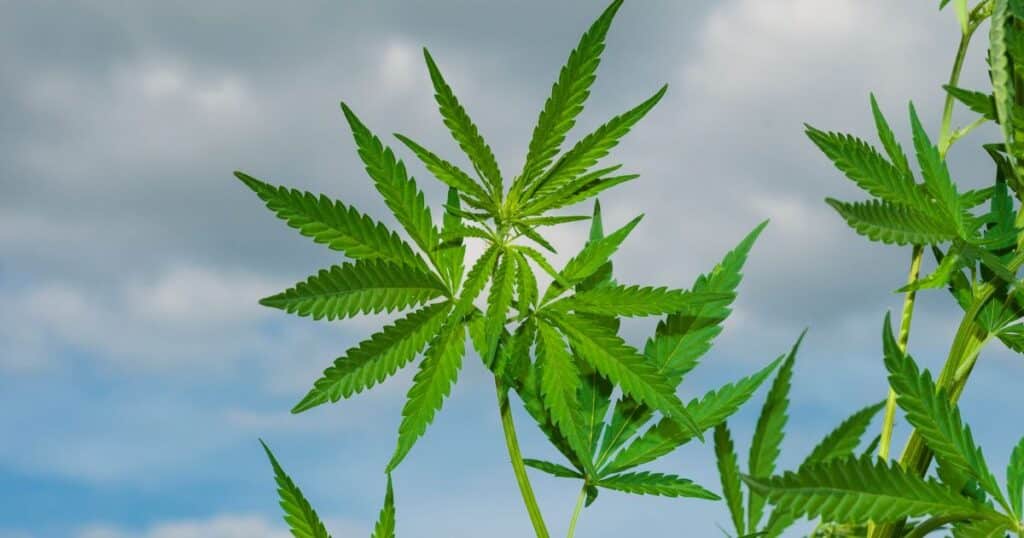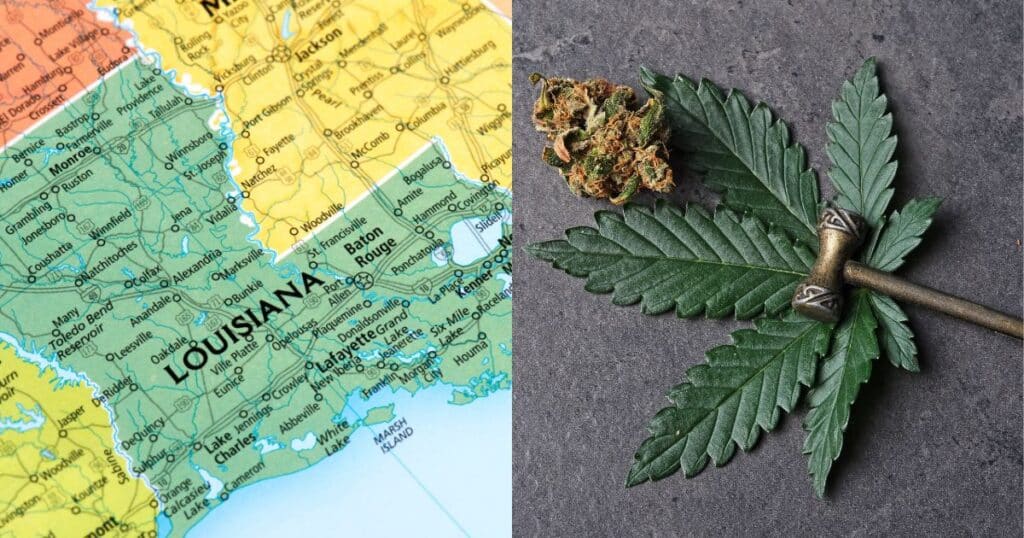In a recent move for Louisiana cannabis reform, two crucial bills have made their way to the governor’s desk and are awaiting signature. These pieces of legislation signal a shift towards more progressive cannabis policies, reflecting a growing recognition of the need for change.
The proposed laws aim to decriminalize certain cannabis-related activities and provide pathways for expungement of past convictions. They offer hope for those burdened by past cannabis-related convictions, potentially paving the way for a more equitable and just legal system.

Louisiana Cannabis Legislation HB 165 and HB 391
House Bill 165: Decriminalizing Marijuana Paraphernalia
Current Law: As it stands, possessing marijuana paraphernalia in Louisiana can result in severe penalties. A first offense can lead to a fine of up to $300 and 15 days in jail. Repeat offenders face even harsher consequences, with second convictions carrying fines up to $1,000 and six months’ imprisonment, and third offenses carrying fines up to $2,500 and up to two years in prison, possibly with hard labor.
Proposed Changes: HB 165, sponsored by Rep. Delisha Boyd (D), aims to significantly reduce these harsh penalties. Under the new bill:
- First Offense: The penalty for possessing marijuana paraphernalia would be reduced to a $100 fine.
- Second Offense: A fine of $500.
- Third and Subsequent Offenses: A fine of $2,500.
These changes represent a considerable reduction in the severity of the penalties, moving towards a more lenient and understanding approach to cannabis paraphernalia.
House Bill 391: Cannabis Pardons
Current Law: Currently individuals convicted of cannabis possession in Louisiana must navigate a complex and often insurmountable process to secure a pardon. This includes serving their sentence and obtaining a recommendation from the Board of Pardons.
Proposed Changes: HB 391, also sponsored by Rep. Boyd, seeks to streamline this process and offer relief to more individuals. Key provisions include:
- Eligibility for Pardon: Individuals convicted of cannabis possession would be eligible for a pardon without needing to complete their sentence or obtain a recommendation from the Board of Pardons.
- First Offense Only: The pardon would only be available for first-time offenders.
- Payment of Court Costs: To receive a pardon, the individual must have paid all court costs related to their conviction.
This bill aims to provide a second chance for those with past cannabis possession convictions, enabling them to move forward without the weight of a criminal record.
Both HB 165 and HB 391 have successfully passed through the Louisiana House and Senate. Last Wednesday, House lawmakers approved Senate amendments to the bills, bringing them one step closer to becoming law. The amendments, described as “technical in nature” by Rep. Boyd, were approved by the House in a 62-30 vote.

Impact of These Bills
If signed into law, these bills will have a profound impact on individuals with past cannabis-related convictions and those who might face such charges in the future.
Additionally, the decriminalization of marijuana paraphernalia means fewer people will endure the severe penalties currently in place, thereby reducing the strain on the legal system and offering more lenient consequences for what many see as minor infractions.
Furthermore, the pardon bill, HB 391, provides a pathway for individuals to clear their records, thus enabling them to pursue employment, housing, and other opportunities without the stigma of a criminal conviction.
Beyond individuals, these bills represent a broader shift in Louisiana’s approach to cannabis. By reducing penalties and offering pardons, the state is moving towards a more progressive stance on cannabis, aligning more closely with public opinion and the policies of other states.
For businesses operating in the cannabis industry or those considering entering the market, these legislative changes could signal a more favorable regulatory environment. As penalties decrease and the state adopts a more lenient approach to cannabis, the business landscape may become more welcoming to cannabis-related enterprises, potentially boosting the local economy and creating new job opportunities.

















